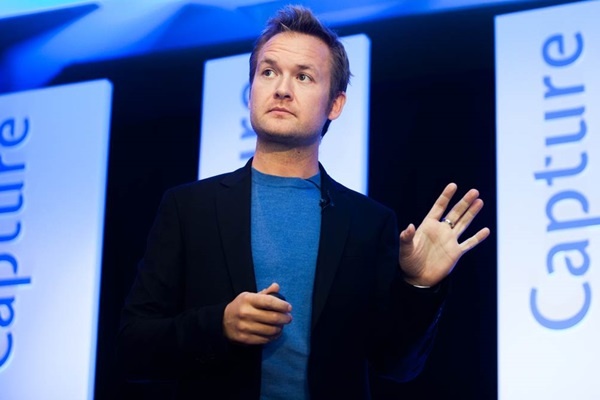
Helena Boschi Speaking Reel

 Play Video
Play Video
 View Fees
View Fees
Dr. Helena Boschi is a globally recognised psychologist who focuses on applied neuroscience in the workplace. She brings the science of the brain and behaviour to life in a way that is understandable and relatable for all people who are interested in improving their ability to think, make decisions, drive change, and interact with others.
Having worked for a number of listed multinational companies across a range of disciplines, from sales and marketing to international relations; organisation design; and leadership development; Helena is uniquely placed to bring the fascinating world of brain science to the business context with relevance and common sense.
Exclusively represented by Leading Authorities speakers bureau, Helena works closely with our clients across the globe to stimulate thinking and offer practical strategies and solutions. She is particularly passionate about improving physical and psychological wellbeing in a world that is placing increasing demands on our biological and cognitive resources. She has researched the impact of chronic, work-induced stress on brain function and published a book called Why We Do What We Do: Understanding Our Brain to Get the Best Out of Ourselves and Others.
A member of the British Psychological Society, Helena delivers compelling messages that are backed by science, grounded in the real world, and communicated in a style that engages all of her audiences.
The Neuroscience of Leading Through Change. Traditional change models often revolve around the ‘change curve’ which takes people on a journey from initial shock to eventual acceptance, built on the assumption that there is an end in sight. In today’s world of constant and often unexpected and unplanned change, this approach may no longer be relevant or useful. What is needed instead is an ability to respond fluidly and flexibly to shifting expectations and demands, whilst also accepting continuous non-closure.
This session offers a new and fascinating look at change and explains how the human brain, which tries to do everything to reduce uncertainty and find closure, is not inclined to ‘embrace’ change. However, it is when we are faced with the unknown and unpredictable that we experience real self-discovery and learning. In this session, Dr. Helena Boschi offers simple and practical strategies for all those needing to navigate uncertainty and lead others through turbulent times. Leading or adapting to change should therefore not be viewed as an initiative but rather as a skill that is needed throughout life.
The Neuroscience of Innovation: Reigniting the Creative Spark in All of Us. As Pablo Picasso once said, “It takes a long time to become young.” When we were children, we were more creative and expansive in our thinking; we were more inclined to experiment, take risks, test our thinking. But during our childhood years we learned to adopt narrowing down strategies and learn to look for the one right answer instead of opening ourselves up to exploring various possibilities. The older we became, the more we tended to see the world through a narrow lens of expertise and accumulated knowledge, and we stopped looking beyond what we already knew.
Innovation demands that we rediscover the creativity that is latent in all of us. If we turn our assumptions upside down and keep questioning what we do and why we do it, we may learn to relearn the curiosity we enjoyed as children. For organisations to be innovative we have to start first with the creativity of people. The generation of new insights and fresh perspectives is at the heart of innovation, and this session provides simple tools and hacks that exercise our cognitive muscle and stretch our thinking to help us alter the way we view our world.
Tough Times Make Us Tougher: The Power of Resilience. We learn to be helpless, especially when we feel out of control. We give up easily, avoid difficulty and may even place too much value on positivity. In a world where people are undoubtedly feeling stressed, where wellbeing is the focus of many organisational initiatives and where there are increasing incidents of professionals reporting burnout, the topic of resilience is of critical importance to the long-term health of organisations and their people.
But we don’t build resilience when life is easy or by avoiding difficulty. On an individual level we need to get used to doing things that are hard, that tax us and force us to feel the pain of learning – both at home and at work. We need to experience discomfort to help us deal with discomfort. Both teams and organisations will build greater reserve through being exposed to challenges that force collective learning. In this session, Dr. Helena Boschi explains what we need to be doing to strengthen our responsiveness to our environment. She also provides insights into the protective factors that contribute to individual longevity and long-term health, and points to where we should be focusing our efforts throughout our life.
Inclusive Excellence: Unlocking the Full Potential of Every Individual. Being inclusive is not the same as not being biased, although they are connected in the sense that being more aware of our biases may enable more considered and considerate decision-making. The human brain does not generally gravitate towards anything that is ‘different’ because it is difficult to interpret and therefore may feel threatening. Creating cultures where we include difference therefore takes conscious effort and requires an ability to accept non-conformity to established norms.
Because most of us have an innate need to feel part of a social structure, speaking or acting in any way that challenges this comes with a psychological cost. In this session, Dr. Helena Boschi explores what it takes to disrupt received wisdom and challenge groupthink so that we get the best out of ourselves and each other and foster full participation in any group or debate.
![]() Client Testimonials
Client Testimonials